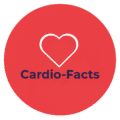Introduction
Smoking and heart disease are closely connected. While many people think smoking mainly affects the lungs, the truth is that cigarettes silently damage your heart and blood vessels. In fact, smoking is one of the leading preventable causes of cardiovascular disease worldwide.
In this article, we’ll explore the hidden ways smoking harms your cardiovascular system — and how quitting can transform your heart health.
1. Smoking and Atherosclerosis: When Arteries Become “Clogged”
Cigarette smoke contains thousands of chemicals. Many of them directly injure the inner lining of your arteries, known as the endothelium.
- This damage accelerates the buildup of plaque (fat, cholesterol, calcium).
- The arteries stiffen and narrow, reducing blood flow to vital organs.
- Over time, this condition — called atherosclerosis — sets the stage for heart attacks and peripheral artery disease.
👉 According to the American Heart Association, smokers have twice the risk of developing coronary artery disease compared to non-smokers. AHA link
2. Stroke: The Overlooked Consequence of Smoking
Smoking not only affects the heart but also the brain.
- The toxins in cigarette smoke increase blood clotting tendency.
- Combined with narrowed arteries, this makes strokes much more likely.
- Research shows that smokers have up to 2.5 times higher risk of ischemic stroke. CDC link
Even occasional smoking or exposure to second-hand smoke significantly raises this risk.
3. Arrhythmias: When the Heart Loses Its Rhythm
Another “hidden danger” is the effect of smoking on the heart’s electrical system.
- Nicotine acts as a stimulant, raising heart rate and blood pressure.
- This can trigger irregular heartbeats (arrhythmias), such as atrial fibrillation.
- Arrhythmias increase the risk of stroke and heart failure.
Recent evidence links long-term smoking with a higher incidence of atrial fibrillation. ESC link
Why Quitting Smoking Transforms Your Heart Health
The good news: it’s never too late to quit. Studies show that within 1 year of quitting, the risk of coronary heart disease drops by 50%. After 10–15 years, the risk approaches that of a non-smoker. WHO fact sheet
Other benefits:
- Blood pressure lowers.
- Circulation improves.
- Oxygen delivery to tissues normalizes.
Practical Tips to Quit Smoking (and Stick With It)
- Set a quit date and share it with friends/family.
- Use nicotine replacement therapy (patches, gums, sprays).
- Talk to your doctor about prescription medications.
- Avoid triggers (coffee, alcohol, stress situations).
- Stay active: physical activity reduces cravings and supports your cardiovascular health.
Final Takeaway
Smoking silently damages your arteries, brain, and heart rhythm — making atherosclerosis, stroke, and arrhythmia much more likely.
But every cigarette you don’t smoke is a step toward healing. The earlier you quit, the stronger your heart’s recovery.
📚 References
- American Heart Association — How Smoking and Nicotine Damage Your Body
- CDC — Smoking and Heart Disease, Stroke, and Peripheral Artery Disease
- WHO — Tobacco (fact sheet)
- ESC — Quitting smoking nearly halves heart attack risk (2024)
- ESC — Action on Nicotine Harm (2025)
- JAMA Network Open — Smoking Cessation and Incident Cardiovascular Disease (2024)
- British Heart Foundation — Smoking
- FDA — How Smoking Affects Heart Health
🚀 FAQ
Q1. How does smoking cause heart disease?
Smoking damages the arteries, accelerates plaque buildup (atherosclerosis), and increases clotting, which can lead to heart attack and stroke.
Q2. Can quitting smoking reverse heart damage?
Yes. Within one year of quitting, the risk of coronary heart disease drops by 50%, and after 10–15 years it’s similar to a non-smoker’s.
Q3. Is secondhand smoke dangerous for the heart?
Absolutely. Even short exposure to secondhand smoke increases the risk of heart disease and stroke.
📚 Recommended Books to Quit Smoking
- Allen Carr’s Easy Way to Stop Smoking – A world-renowned method that has helped millions quit smoking without nicotine substitutes.
- Stop Smoking with CBT: The most powerful way to beat your addiction – A cognitive-behavioral approach to breaking free from nicotine.
⚠️ Affiliate Disclosure
Some links in this article are affiliate links. If you purchase through them, Cardio-Facts earns a small commission — at no extra cost to you. We only recommend tools we trust and believe in based on clinical experience.
⚠️ Disclaimer: The content on Cardio-Facts is for informational and educational purposes only and does not constitute medical advice. Always consult a qualified healthcare professional regarding your health. Read our full disclaimer and legal policies.
